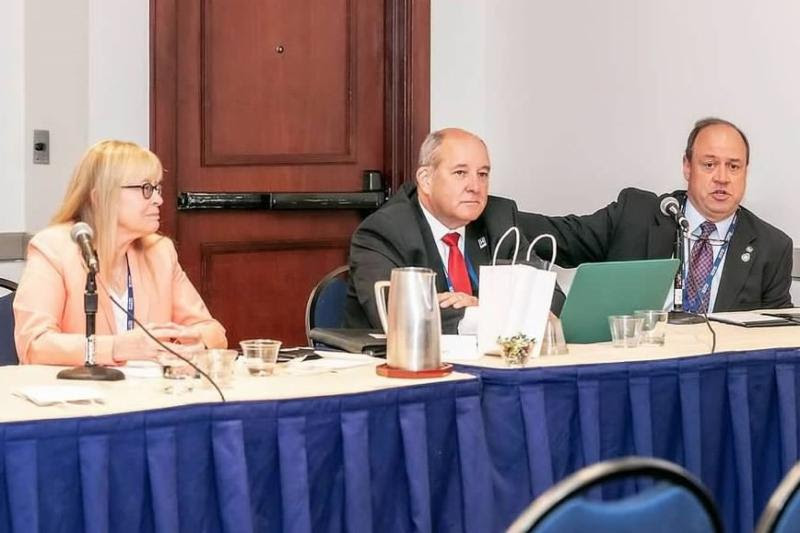Barry Herrin, CHPS, FAHIMA, FHIMSS, FACHE, attorney and founder of Herrin Health Law, served as one of three panelists at the Georgia HIMSS annual conference Oct. 16, 2018, in Atlanta. The trio discussed “The Shift to Value-based Reimbursement (VBR).” Fellow panelists and moderator were:
- Mary G. Gregg, MD, FACS, MHA, Enterprise Director, CareSource (panelist)
- Raymond Snead, Jr., D.Sc., FHFMA, FACHE, long-time CFO/CEO who recently served as Interim CEO at Grant Memorial Hospital, Petersburg, WV (panelist)
- Glenn Pearson, FACHE, MHA, principal and founder, Pearson Health Tech Insights (moderator)
Here are some highlights from our lively interchange:
- There has been little true progress toward containing healthcare expenditures despite decades of trying various approaches including HMOs, PPOs, DRGs, ACOs, CON, and other efforts.
- For the most part, VBR amounts to transferring risk to providers and does little to truly improve care.
- Each party in the healthcare equation has a different definition of ‘value.’ Patients want the most care for the least amount of money. Payers and employers want to pay providers as little as possible. Providers want to be adequately compensated for the care they deliver.
- By and large, VBR does not allow for variability in patient differences, including the extent to which they follow good health practices and adhere to suggested care guidelines. Chronic illnesses represent a huge part of health status and medical costs. Patients can do more to improve their health and, thereby, help moderate costs through better lifestyle choices and compliance with care guidelines.
- Technology can help identify and address health and, therefore, tamp down coats. However, some organizations merely throw new technology or an app at a problem without adequately defining it or developing a comprehensive plan to address root-cause issues.
- Hospitals must get physician involvement from the very beginning whenever proposing a change in medical practice or adopting new technology. Walking three-quarters of the way through a process and then inviting physicians into the discussion guarantees failure.
- The days of considering data security as an afterthought are over. Ironclad practices must be baked in from Day One.
- We need better analytics for identifying and tracking the 20% of patients who require the greatest level of care.
- Patient mental health issues contribute greatly to total costs but are not being effectively addressed.
- Cost coverage is being relegated to a smaller and smaller percentage of patients with insurance policies that fully cover the cost of care. As the number of plans covering costs dwindles, in order to stay in business, hospitals continue to shift more and more costs to those with more adequate plans. This effectively makes hospitals taxing agencies.
- With increasing pressures from all sides, physicians are burning out faster than ever before.
- Innovation is not being rewarded within the current delivery and payment system.
- Amazon and others outside the traditional healthcare arena may be the source of truly disruptive innovation.
You can see the conversation went well beyond just VBR since all these issues covered interlock. The overall consensus was that the enormous complexities of the healthcare system make it impossible for a single approach like VBR to tame the cost beast.
Reprinted with permission from Pearson Health Tech Insights.
Barry S. Herrin, JD, FAHIMA, FACHE, is the founder of Herrin Health Law, P.C., in Atlanta, Ga. Herrin offers more than 30 years of experience practicing law in the areas of healthcare and hospital law and policy, privacy law and health information management, among other healthcare-specific practice areas. He is a Fellow of the American College of Healthcare Executives and a Fellow of the American Health Information Management Association. He also holds a Certificate in Cyber Security from the Georgia Institute of Technology. Reach him at 404-459-2526 or barry.herrin@herrinhealthlaw.com.

